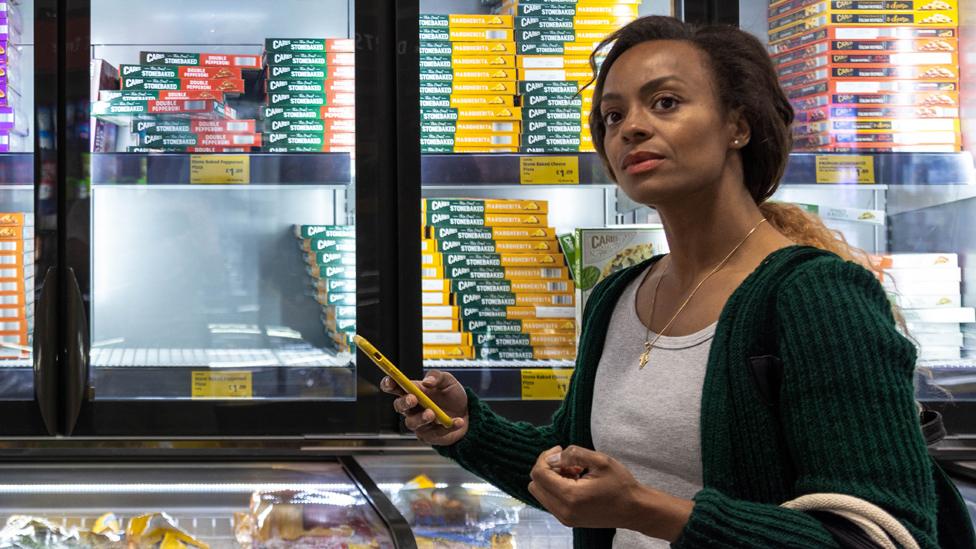UK inflation: Yate traders offer bargains as prices keep rising
- Published
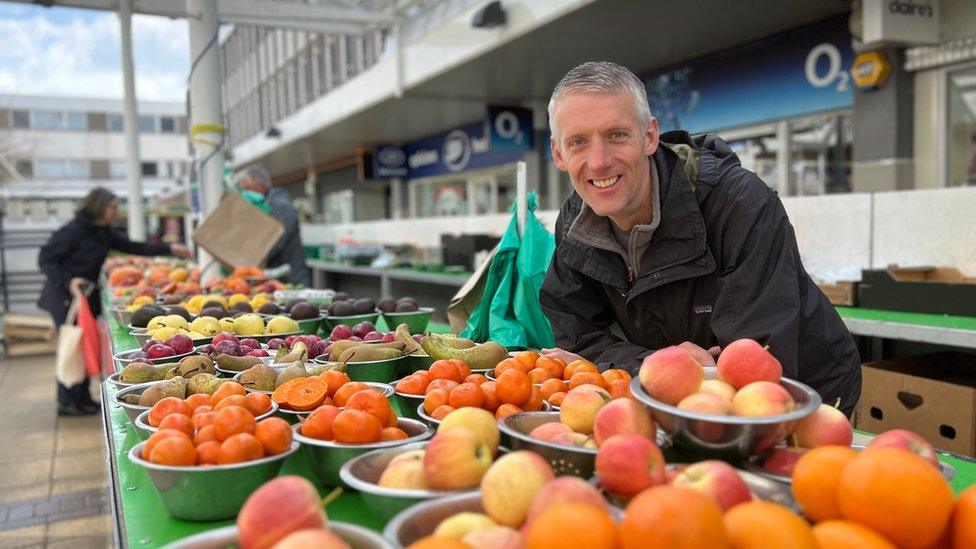
Barry Champion tries to win customers in Yate with low-priced produce
Inflation has fallen slightly overall, latest figures show. But what effect is a sustained increase in prices having on small businesses - and how are traders in one town coping?
According to the Office for National Statistics (ONS), prices rose by 10.1% in the year to March, down from 10.4% in February.
Food prices have been going up even quicker: by 19% since March 2022, the fastest rise since August 1977.
Back then, Elvis Presley had just died and Queen Elizabeth II was celebrating her Silver Jubilee.
And in Yate, just outside Bristol, people were enjoying a shiny new shopping centre.
Today, the centre echoes to cries of market trader Barry Champion, celebrating his cauliflowers.
"Olly, Olly, Olly!" he cries. "Get a lovely big cauli!"
There's another bargain, too: "Mates' rates for seedless grapes!"
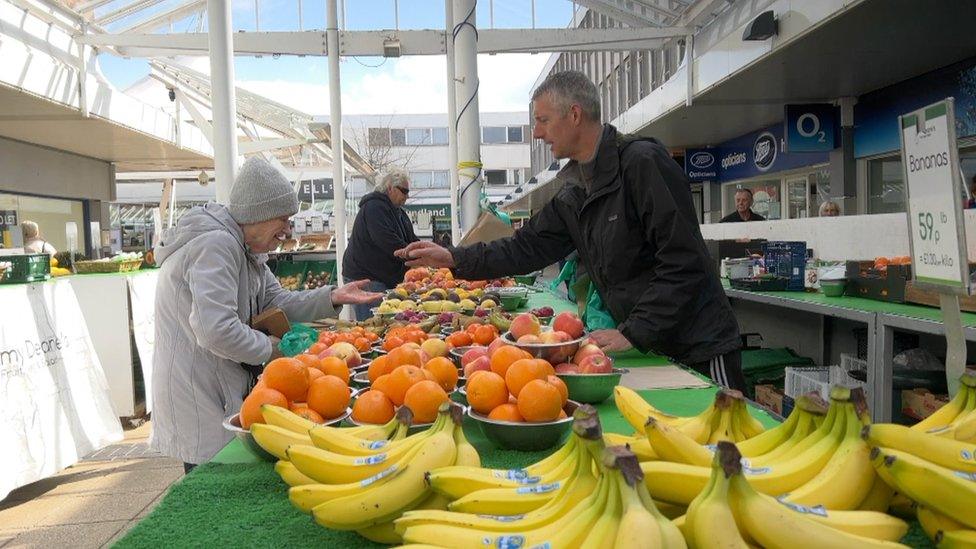
Food prices have risen 19% in the last year, so shoppers are seeking bargains
But the winds of global economic storms reach every trader, and Mr Champion is not immune.
Nor are his carrots.
"A year ago I could sell a bunch for 99p," he remembers.
"Today it's £1.49. And we're only making 10p on that, which isn't much, really."
His stall is busy, as shoppers seek out bargains where they can. Aubergines and strawberries are cheaper than at the big supermarkets, even the discounters.
Mr Champion has a classic old sales technique, filling aluminium bowls with seven onions, six limes or three big sweet potatoes.
Each bowl is £1. Shoppers seem to love them.
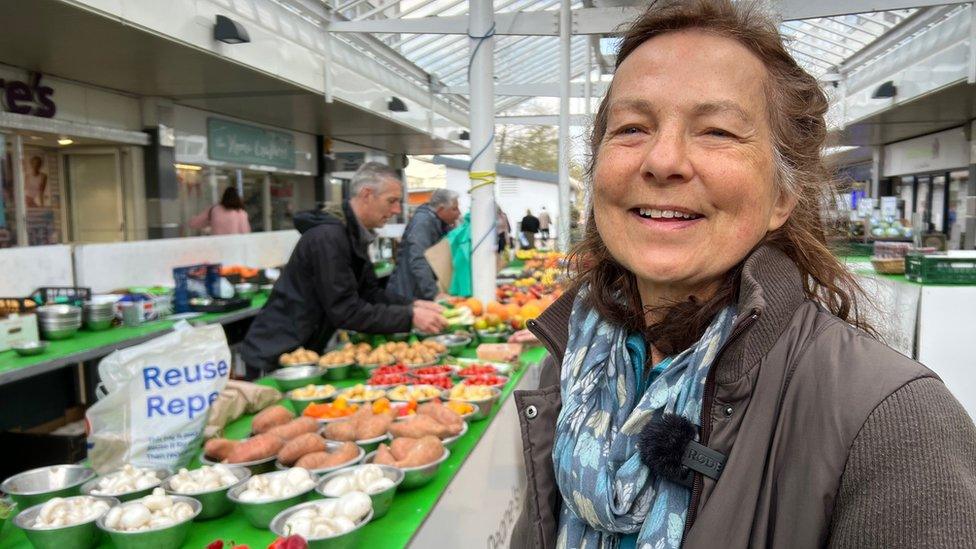
Katie Byrne prefers local food traders to the big supermarkets
Katie Byrne shops here often. "It's awful, what's happening in the supermarkets," she tells me.
"But you're better off here, because you can still get a bowl of onions for £1."
Amid the colour and clamour of the veg stall, I scroll through the latest prices from the ONS, external.
Eggs up 32%, pasta up 24%, milk up 38%. And Cheddar, the West Country's most famous food, up 49%.
It is tough for shoppers, but tougher still for cafe owners and restaurateurs whose raw materials have soared in price.
I pop into a pretty cafe, called the Vintage Birdcage Cakery.

Sam Holliday says small firms are finding it hard to plan for ever-rising prices
It's all boho chic and delicate sugarwork. But sugar is up 42%.
It's here I meet Sam Holliday from the Federation of Small Businesses in the West.
He explains the dilemma facing shops and cafes like this.
"Your staffing costs increase, your suppliers are asking for more money, all of which is understandable," he says.
"But what do you do? Do you put your prices up, when your customers have no more money to pay? It's incredibly hard for small firms to plan right now."
Your device may not support this visualisation
At first, a year ago, it was just energy prices that rose. Following Russia's invasion of Ukraine, global prices for gas and oil soared.
In the latest figures, gas is still the highest riser by far, at 132%.
Petrol and diesel soon followed, with the former peaking in July at £1.90 a litre.
But now those increases have seeped into every corner of the economy, because everything uses energy.
In the oldest store in Yate Shopping Centre, Abraham's Jewellers, I find Richard Abraham bent over a high-tech electronic soldering machine.
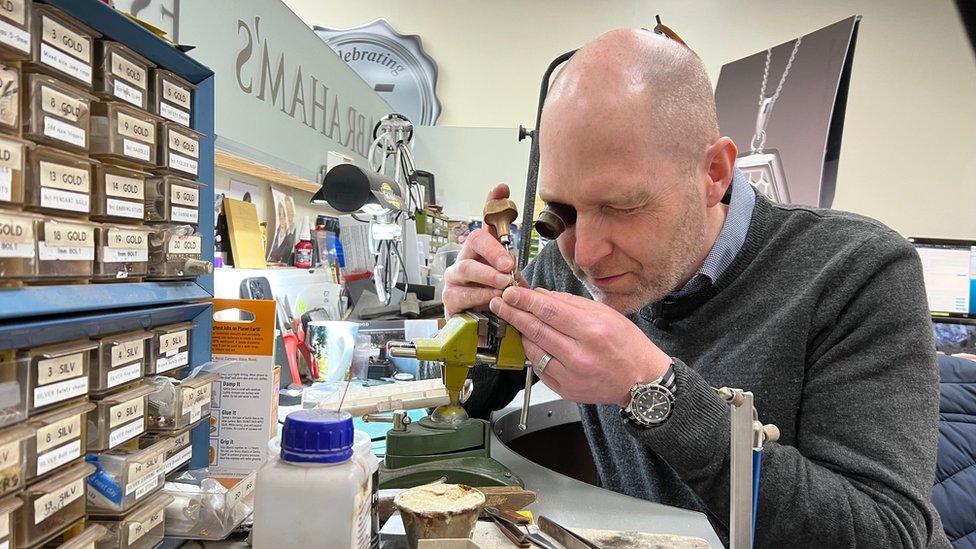
More people are opting to have jewellery repaired than buy new, says goldsmith Richard Abraham
He's repairing a much-loved wedding ring, cut off a customer's finger when she needed medical care.
To do this, he needs a special ingredient, rhodium, to plate the gold and give it the white gold shiny finish.
A couple of years ago, he tells me, a small pot would cost him £250.
"Today it is over £1,500. We've seen absolutely massive increases for all our rare metals," he says.
"Gold itself is at an all-time high. Which is good for sales, but not when you need to buy it for repairs."
I watch as he applies a craftsman's skills to this delicate repair.
Having a workshop onsite is what marks his family's shop out from the online mass market jewellers.
And as jewellery prices rise, it is repairs that keep his business alive.
"There's a lot more repair work," he explains.
"When the cost of a necklace has gone from £50 to £150, people would rather fix it than buy new."
Economists now predict overall inflation will fall later in 2023, maybe to 5%.
But that will still mean prices continuing to rise, just not as fast as they are now.
Mr Holliday says small firms welcome the slight easing in inflation, but adds: "Although any fall is welcome, we really need to see a much bigger fall in inflation to make a real impact to small companies books".

Follow BBC West on Facebook, external, Twitter, external and Instagram, external. Send your story ideas to: bristol@bbc.co.uk , external
Related topics
- Published20 April 2023

- Published19 April 2023

- Published14 April 2023
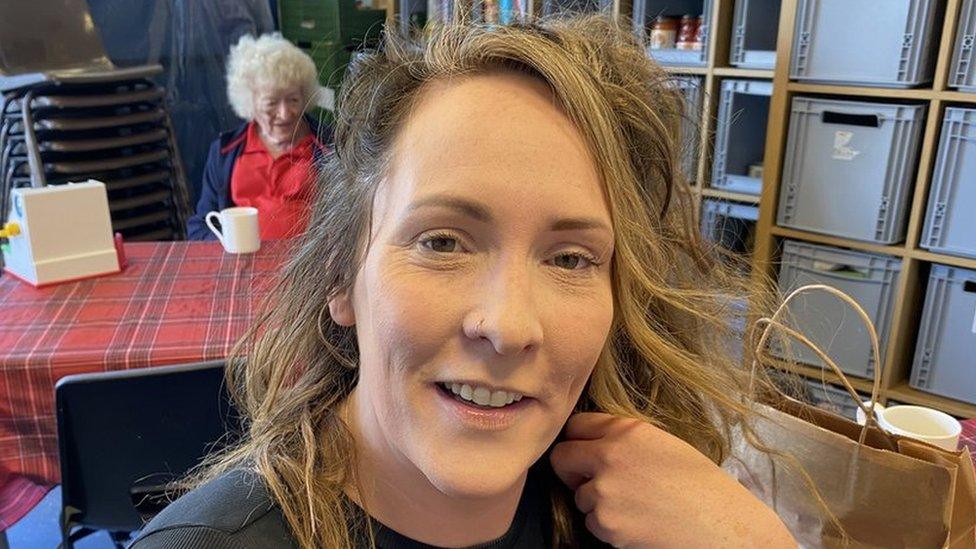
- Published14 April 2023
